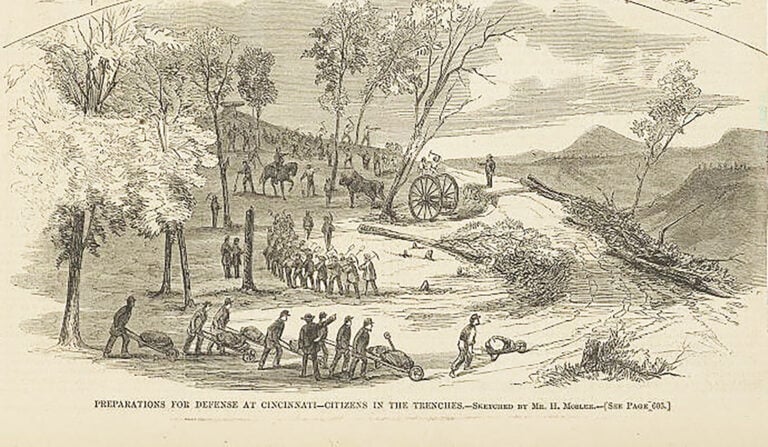According to the experts, the time between Thanksgiving and Christmas can be one of the most stressful times of the year. Between food shopping, present shopping, cooking, baking, present wrapping, work, kids, mailing lists, office parties, Christmas parties, who’s coming, who’s going; there’s hardly a moment left to catch our breath before it’s time for church. Yet, after the last present has been opened, the last guest has left, and the final decorations put away, do you find yourself fulfilled and renewed or saddened and disappointed in how you spent your holiday season?
If you’re like me, you may find yourself longing for those bygone days when people took a pause between holidays and seemed to treat each one as separate, distinct, and more meaningful. Those days are behind us now if ever they were there at all, replaced instead by an ever increasing assault on our senses, sensibility, and emotions, intended to leave us breathless, frazzled, and quite a bit lighter in the pocketbook.

Statistically, Christmas represents the largest economic stimulus to America, as well as it does to many other nations around the world.
According to a recent Statista survey, the U.S. retail industry generates over three trillion (yes trillion) dollars during the holidays, accounting for over 19% of annual retail sales. 95% of the public say they celebrate Christmas, and this year we are expected to spend an average of $929 on gifts for family and friends. Yet that’s only a part of how we stimulate the economy.
According to The Economics of Christmas, more than 90 million of us are likely to travel more than 50 miles this holiday season; $6.5 billion will be spent on Christmas cards; $22 million on turkeys, $1.7 billion on candy canes, and 37-40 million Christmas trees will be sold.
With so much money to compete for, is there any doubt why retailers like Wal-Mart begin displaying their Christmas merchandise so shortly after labor Day or have their employees don Santa hats and reindeer ears before most of us have had a chance to buy Thanksgiving turkey? It’s not just the retailers that feed the frenzy.
Radio stations broadcast 24 hours of Christmas music beginning in mid November; TV stations show reruns of Christmas specials from our youth; and movies that trumpet the image of the season run continuously on the Hallmark channel all month long. Should we even bother to question anymore why some of our neighbors put up Christmas decorations the day after Halloween rather than the more traditional day after Thanksgiving or why seemingly normal (and not so normal) people turn Black Friday and Cyber Monday into a competitive Olympic sport?
Together they create a powerful influence on our mood, expectations, and self-image, not to mention our credit card debt. It’s an influence that’s even managed to affect the time and day we are likely to attend church services and how we may choose to spend Christmas Day.
Lost in all the distractions, hype, and glitter is the toll the holidays can take on our own health and those to which the holidays serve only to heighten depression. According to Peggy L. Ferguson, Ph.D., a psychotherapist and author of many articles on the subject, there can be any one of a number of reasons why people get more depressed during the holidays.

Some suffer from Seasonal Affective Disorder. Some grapple with unresolved loss and grief. Still others may be faced with substance and alcohol abuse; are isolated and alone; or simply overwhelmed. For those dealing with any of these issues, there is help. Counseling and support groups are available through places like the National Alliance on Mental Health (NAMI) www.namilexington.org or the Senior Renewal Center www.kentuckyonehealth.org or through any one of a number of local churches devoting their attention to those less fortunate or otherwise “left out” on the holidays.
They, like many other organizations and individuals, are there to help and remind us all what lies at the core of this most special holiday season.
For those seeking tips on how to reduce your own holiday stress. Dr. Ferguson offers some very simple advice. Among her suggestions, she encourages people to keep their expectations realistic and manageable. Put your health first. Spend time with people who love and support you. Take stock of your blessings and never spend more time, energy, and other resources than you have just because it’s the holidays.
Sounds like sound advice.
However you celebrate this holiday season, here’s hoping that the spirit of Christmas resides less in your wallet and more in your heart in taking care of yourself and those you love.
Jeff Rubin is an advocate and adviser on community and aging issues, having spent over 20 years as a director and facilitator of community service programs at the local, state and national levels. An advocate for “Age-friendly” and “Livable” communities, Mr. Rubin is currently working to advance these initiatives statewide in Kentucky and invites your comments, involvement, and support. He can be reached at Jeffrubin515@gmail.com.

















